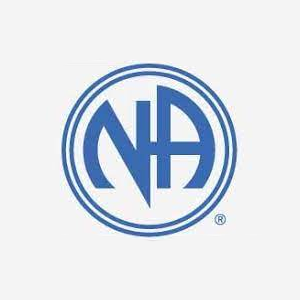Drug & Alcohol Rehab in Coventry

How Does Rehab Work?
The process of rehab helps individuals regain their mental health and their overall quality of life. Rehab involves patient-focused therapy in which behaviours involving drug and alcohol use are targeted, coping strategies introduced, and support services provided. Individuals are taught how to avoid relapse with the option of entering a residential or an outpatient programme. residential rehab requires that individuals stay at a chosen facility or recovery centre for the duration of treatment. Outpatient rehab programmes have clients maintain their day to day life while partaking in therapy sessions and group work.
What Happens During Residential Rehab?
Taking the brave step towards recovery starts with rehabilitation. It is a process, and it takes time but with dedication and support relapse can be prevented. If you’re unsure about what rehab entails, we provide a breakdown of what to expect.
Rehab occurs in stages. It starts with a medical assessment. Individuals must be professionally assessed to help staff understand the nature of your addiction, its history and comorbid disorders (such as bipolar or depression). The information obtained from the assessment is used to create a unique therapy programme for you. Because every person is different, a personalised treatment plan will help provide a more tailored programme that meets your needs and requirements.
Detox is an essential phase of a recovery programme. It involves the safe removal of drugs and/or alcohol from the body. When detox is done under medical supervision, withdrawal symptoms can be monitored, and its severity managed. This can significantly improve the odds of success and minimise relapse.
During rehab, patients will receive therapy. Treatment can be accessed on an inpatient or outpatient basis. Therapy ranges from individual counselling including Cognitive Behavioural Therapy, skill-building and group sessions.
1. Assessment

To receive the best treatment to suit your needs, an assessment is the first stage of the recovery approach. Reviews are carried out with a medical professional and will include a telephone screening. The professional asks questions about your wellbeing, your substance use, any history of addiction, and whether you may have any comorbid mental health issues. A phone assessment supplies staff with important information that will help to safely handle the detox process.
To help you or someone you know, receive the best possible therapy for addiction and substance use, it is important to receive an individual assessment by a dedicated professional. The assessment will assist the course of therapy including treatment for all those with comorbid illnesses such as anxiety.
2. Detox

Detox is a process in which substances such as drugs and alcohol are safely removed from the body. It is overseen by professionals in a residential centre.
It is recommended to have a managed medical detox because the experienced staff is readily available to help you through the withdrawal process. As the drug is removed, you may begin to develop withdrawal symptoms. Without professional aid, there is a higher risk of relapsing. Detox is followed by a fully tailored therapeutic programme. You can attend inpatient or outpatient therapy that is guided by trained addiction counsellors and a dedicated team.
3. Therapy

Therapy involves the one-on-one and group sessions you will attend with a qualified therapist, counsellor, and support staff. Treatment is provided in both a residential rehab or as part of an outpatient programme. The direction for therapy will depend on individual needs.
Step by Step Process for Residential Rehab
To understand your medical and mental health history.
Arrange a suitable date to begin your journey to recovery.
Begin the managed withdrawal process from substances including alcohol.
To understand the root cause of addiction and how to overcome it.
Aftercare is provided to help manage the risk of relapse.
To help heal the wounds that addictive behaviour has caused others.
Find your Nearest Rehab Centre in Coventry
The nearest rehab centre is Which Rehab Drug & Alcohol Rehab Birmingham.
Address: Which Rehab Drug & Alcohol Rehab Birmingham, 334 Summer Ln, Birmingham B19 3RG, United Kingdom
Call 0333 4444 432 to discuss your alcohol or drug rehab requirements and any other questions you may have about the process of residential rehab.
Outpatient Addiction Services in Coventry
To better understand which form of treatment will help you in your journey to overcoming dependence, it is important to understand the pros and cons of outpatient and residential rehabilitation. Outpatient care can be very useful as it offers a flexible and cost-effective alternative to residential rehab.
Outpatient programmes are not 24 hours or even 12-hour programme, but instead, involve weekly sessions with a therapist or group. Individuals will live at home and continue to work or tend to family time while receiving the necessary counselling.
Private Outpatient programmes involve therapy and counselling sessions delivered by a therapist/counsellor. Sessions typically last up to 90 minutes. Free alternatives do exist through one of the many reputable charities in the UK (Turning Point), but it does not provide the same individualised care that private services provide.
NHS Free Addiction Services in Coventry
The Benefits of Outpatient Services
Private Outpatient programmes will include individualised care strategies to address the specific problems and challenges that are leading to addictive behaviours. Outpatient assistance is commonly sought by individuals who have family commitments or those who need to work full-time. Outpatient programmes are more affordable than inpatient addiction treatment.
The Challenges of Outpatient Services
Outpatient services will always have a crucial place in rehabilitation but for drug or alcohol addiction, remaining in the same environment with access to substances and the usual social circles can risk relapse. Furthermore, free outpatient services provided by the NHS or UK based charities do not provide the same tailored programme that private outpatient services provide, and there is typically a waiting list before you can be accepted for treatment.

How Much Does Rehab Services Cost in Coventry?
Residential drug and alcohol rehabilitation can cost between £1500- £4000 per week. Private addiction treatment within a residential centre may not be accessible for everyone. Fortunately, charity based and government organisations provide free or low cost programmes that those struggling with addiction can benefit from.
Fortunately, free programmes are offered by organisations including the NHS and charities such as Turning Point (that requires self-referrals). Other organisations that offer free and community-based programmes for drug or alcohol addiction include Alcoholics Anonymous (AA), Cocaine Anonymous, and Narcotics Anonymous.
Support Groups in Coventry

Coventry
St Mary & St Benedict Catholic Church, 52a Raglan Street, Hillfields, Coventry, West Midlands CV1 5QF

Fenix - Lithuanian/Russian speaking meeting Group
The Salvation Army Lifehouse, 44 Harnall Lane West, Coventry, West Midlands CV1 4EZ

Coventry: Living Sober:
St John the Baptist Church, Fleet St CV1 3AY
The Pros and Cons of Seeking Treatment in Your Local Area
Pros
1. You are familiar with the area which may provide a layer of comfort/safety.
2. Family or friends can easily travel to visit or are close by.
3. You may save on the costs of travelling long distances for treatment, or free addiction services may only be offered in your hometown.
Cons
1. A local environment means access to drug dealers or other triggers. This is more of an issue if you decide upon outpatient programmes.
2. Not considering locations outside your area could equate to missed opportunity for more valuable and rewarding programmes.
3. Addiction treatment programmes that are nearby don’t always provide the best standard of rehab.
In the event you are unsure about a particular addiction treatment service, you can look to the CQC website for more information including a rating of that service.

